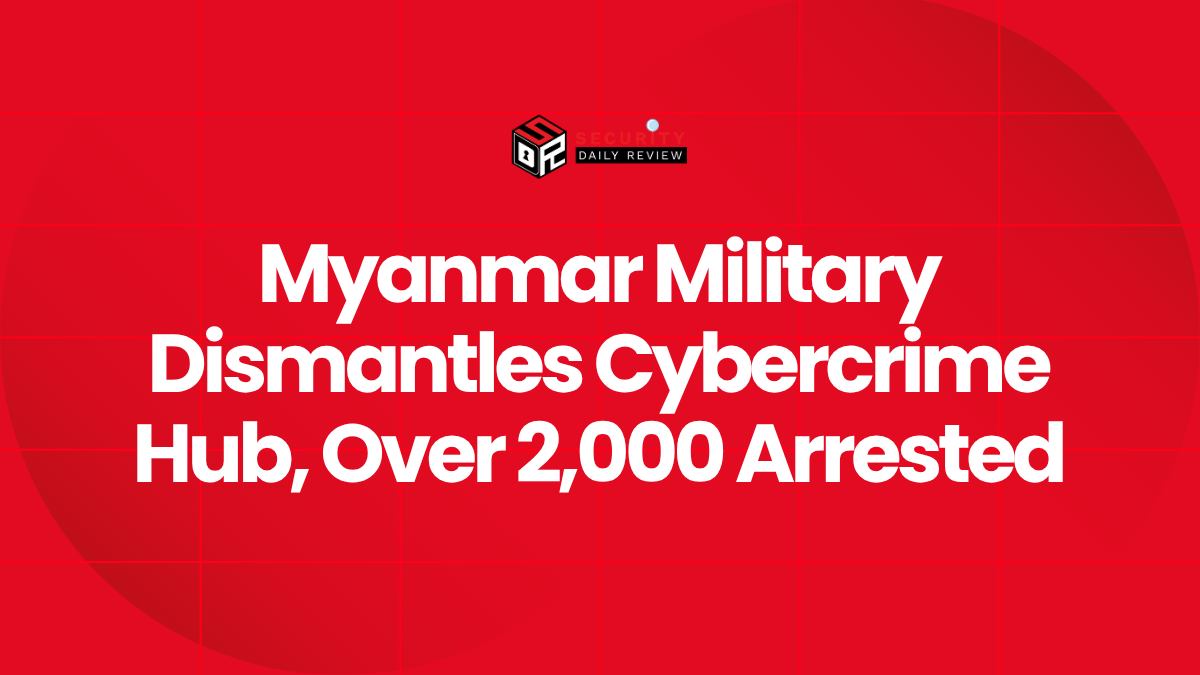Myanmar’s military has taken decisive action against one of Southeast Asia’s most notorious cybercrime hubs, dismantling the infamous KK Park compound located near the Thai border in Myawaddy, Kayin State. In a sweeping crackdown that underscores growing international and regional pressure to tackle cross-border scam operations, authorities detained over 2,000 individuals and seized advanced communications equipment used to facilitate extensive cybercrime activities.
Massive Operation Targets Scam Center in Kayin State
The military-led operation conducted in October 2025 resulted in the arrest of 2,198 people linked to various illicit activities operating out of KK Park. According to official reports, the detainees include 1,645 men, 445 women, and 98 security guards. The compound, encompassing more than 260 unregistered buildings, was a stronghold for online scam operations that targeted victims worldwide.
Scams Built on Coercion, Romance, and False Investment Promises
KK Park functioned as a major cybercrime center, deploying schemes such as romance scams, fraudulent investment offers, and illegal online gambling. These operations often involved victims being manipulated emotionally or financially over extended interactions. Authorities say that many of the individuals forced to run these scams were foreign nationals lured to Myanmar by fake job offers, only to find themselves trapped and coerced into cybercriminal work.
- Scammers typically built personal relationships with victims to gain their trust.
- Victims were induced to make fraudulent financial investments or transfers.
- Operators used translation tools and fake personas to maintain deception across borders.
The militarized response follows a broader campaign launched in September aimed at eliminating cybercrime, human trafficking, and illegal gambling infrastructure tied to these centers.
Allegations of Ethnic Armed Group Involvement Remain Disputed
Major General Zaw Min Tun, spokesperson for Myanmar’s military government, alleged that senior leaders within the Karen National Union (KNU)—an ethnic armed group opposing the junta—were complicit in the KK Park operations. However, the KNU has firmly denied any involvement, reflecting long-standing tensions and competing narratives in the conflict-riven region.
The Myawaddy area, which borders Thailand, has been a flashpoint for both armed conflict and transnational criminal activity. It hosts multiple militias and has long been a conduit for illegal trade and trafficking. The military’s assertion of KNU complicity adds a politically charged dimension to what is otherwise being framed as a law enforcement initiative.
Starlink Terminals Played Critical Role in Scam Infrastructure
Key to the operation’s technical reach was the confiscation of 30 Starlink satellite internet terminals. Designed to provide high-speed connectivity even during power outages, these terminals allowed scammers to maintain uninterrupted internet access—critical for real-time operations across international boundaries.
While SpaceX, the U.S.-based company behind Starlink, does not hold a license to operate in Myanmar, its terminals were reportedly smuggled into the country. The centralized presence of such confiscated hardware raises serious concerns about the availability and misuse of resilient communication infrastructure in regions with weak regulatory oversight.
A Broader Regional Crisis with Global Ramifications
Myanmar and Cambodia have emerged as hotspots for cybercrime syndicates taking advantage of weak governance, porous borders, and corruption. Scam compounds like KK Park have generated billions in illicit profits by exploiting both their workers and victims. According to Thai police estimates, nearly 100,000 people may be involved in scam center operations along the Thai-Myanmar border alone.
International pressure has intensified in recent months. Thailand and China have previously cooperated with Myanmar in operations aimed at rescuing individuals trafficked into scam centers. Additionally, in September 2025, the U.S. Department of the Treasury sanctioned over 20 companies and individuals linked to scam operations in Myanmar and Cambodia, citing their roles in organized online fraud and forced labor.
Implications for Cybersecurity and Human Rights
The disruption of KK Park marks one of the largest shutdowns of a cybercrime operation in Southeast Asia to date. However, several unresolved challenges remain:
- No details about the nationalities of the detainees were disclosed, leaving open questions about the number of foreign victims-turned-perpetrators.
- It is unclear whether those arrested will face criminal charges or be treated as trafficking victims in need of rehabilitation.
- The ongoing presence of similar compounds throughout the region suggests that this is far from an isolated incident.
While the crackdown represents a significant milestone in Myanmar’s cybersecurity enforcement efforts, analysts caution that genuine long-term progress will require sustained cooperation across national borders, attention to human rights implications, and decisive action against the financial and logistical enablers of these schemes.
As cybercrime continues to exploit geopolitical instability and digital infrastructure gaps, operations like this underscore both the possibilities and limitations of state-led cybersecurity crackdowns when socioeconomic vulnerabilities remain unaddressed.









